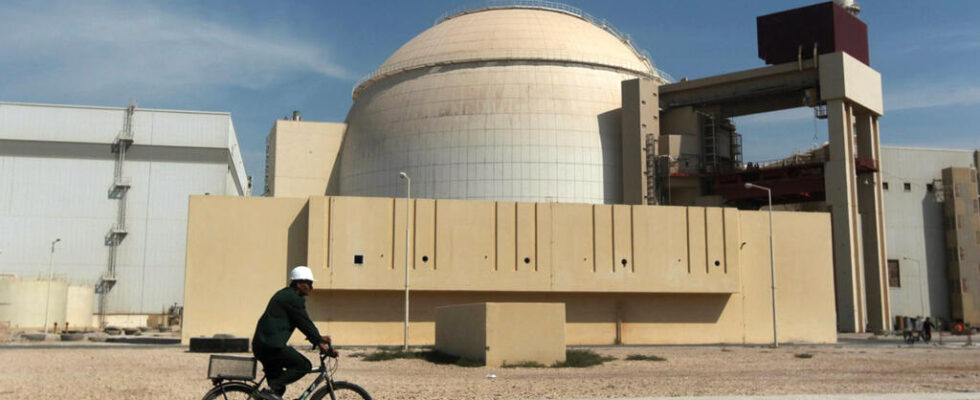Iran has agreed to reconnect surveillance cameras at several nuclear sites and increase the pace of inspections, International Atomic Energy Agency (IAEA) Director General Rafael Grossi said on Saturday. from Tehran.
Surveillance cameras at several Iranian nuclear sites should be reconnected” very soon “, at the end of a technical meeting, announced Rafael Grossi in front of the journalists at the airport of Vienna, while the press release published jointly with the Iranian Organization of Atomic Energy (OIEA) remains vague. In addition, the number of visits by the UN body to the Fordo underground plant, where uranium particles enriched to a level of 83.7% close to the threshold of the atomic bomb were recently detected, will be increased. by 50%.
Director General of the International Atomic Energy Agency (IAEA) was returning from a two-day visit to Tehran, where he held talks at the highest level, notably meeting the Iranian President, Ebrahim Raïsi. The stated purpose of this visit was to ” restart the dialogue with a view to a possible resumption of negotiations on the agreement reached in 2015 in Vienna between Tehran and the major powers to limit Iran’s nuclear activities in exchange for the lifting of international sanctions against the country. ” Discussions continue in an atmosphere of work, frankness and cooperation “, had already affirmed Rafael Grossi at the end of this visit.
The Islamic Republic had severely limited inspections and unplugged from surveillance cameras last year, plunging the IAEA into the dark, in a context of deteriorating relations between Iran and Western powers. ” We stopped the bleeding of information available to the IAEA, further estimated its director. In recent months, for lack of sufficient monitoring, the Agency had said that it was no longer able to guarantee the peaceful nature of Iran’s nuclear program.
The agreement, known by the acronym of JCPOA, has been moribund since the withdrawal of the United States decided in 2018 by President Donald Trump. In the process, the Islamic Republic gradually freed itself from its commitments. Its total stock of enriched uranium thus amounted to 3,760.8 kg on February 12 (compared to 3,673.7 kg in October), more than 18 times the limit authorized by the JCPOA, according to calculations by the IAEA.
(With AFP)
